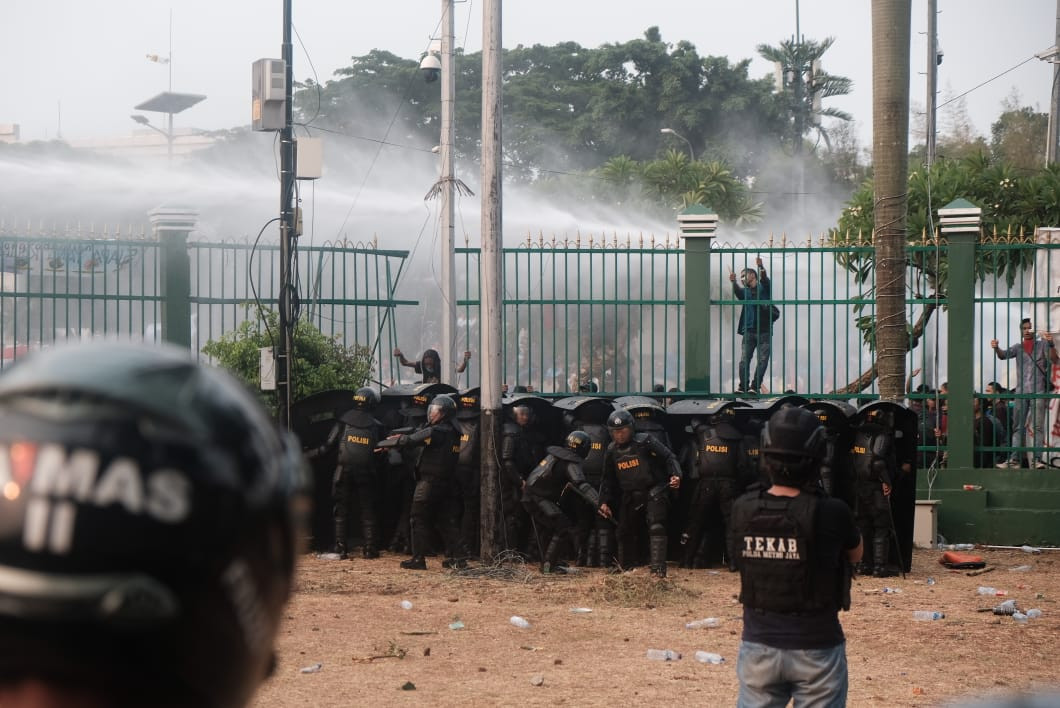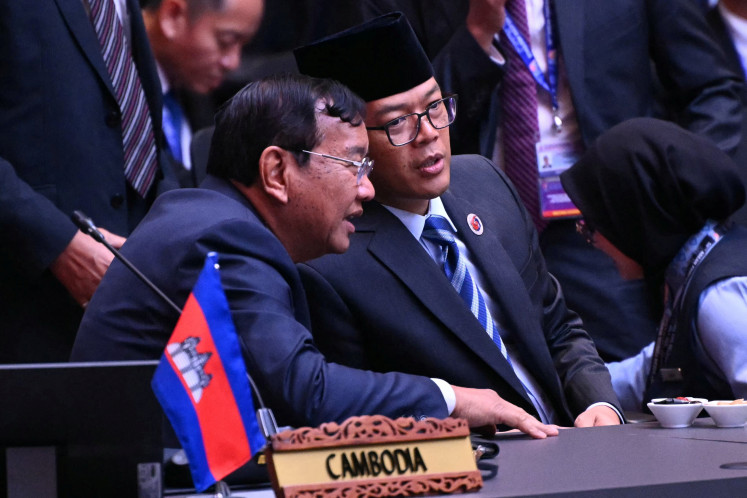Popular Reads
Top Results
Can't find what you're looking for?
View all search resultsPopular Reads
Top Results
Can't find what you're looking for?
View all search resultsWhy the penal code bill is no better than its colonial original
As if retaining the colonial provisions on defaming politicians were not bad enough, the bill also criminalizes any extra-marital sexual relationship, raising concerns of a potentially brutal encroachment on privacy by the state or non-state “moral” apparatus.
Change text size
Gift Premium Articles
to Anyone
I
f the government claims it is on a “historic mission” to decolonize the Criminal Code (KUHP), it is either lying or it does not know what it is talking about.
A quick overview of the contentious provisions within the latest draft revision to the legislation, a direct legacy of colonialism, shows that the bill appears to be no less colonial than the legal vestiges of the Dutch colonizers it wishes to dismantle.
The draft bill categorically criminalizes insults against the president, the vice president and the government. These provisions — stipulated under Articles 218, 219, 240 and 241 — are simply anachronistic in post-authoritarian, democratic Indonesia, more than 100 years after the colonial Wetboek van Strafrecht came into force in 1918.
It is not that we do not respect our leaders. We do not really care if it is the president of Indonesia or the governor-general of the Netherlands East Indies. Such provisions are just way too “rubbery” to enforce and thus could easily be used to repress legitimate criticism.
The government may have inserted new articles to make the clauses less draconian by excluding insults that are made in the “public interest” or in “self-defense”. But these legal caveats hardly make them in any way less rubbery or harsh — seriously, who can prove if one’s insults are more than just a petty attempt to hurt the president’s feelings?
As if retaining the colonial provisions on defaming politicians were not bad enough, the bill also criminalizes any extra-marital sexual relationship, raising concerns of a potentially brutal encroachment on privacy by the state or non-state “moral” apparatus.
I am not saying the colonial criminal law was better. The Wetboek van Strafrecht was a terrible piece of legislation that was discriminatory against non-Europeans, particularly the native population, who were at the bottom of a blatantly racist social order.
The critical issue here is not whether the proposed revision to the current penal code is more humane or rational than its colonial origin (many would argue for the negative), but whether it departs from the purpose of the colonial legislation, which was inherent to the Dutch “divide and rule” strategy to maintain their political and economic hegemony. For them, the law was not just about justice and social order, but also about power.
And now, given the various draconian provisions within the penal code bill, we have serious doubts whether it is substantially different from its colonial predecessor.
The government has made little effort to quash this suspicion. The drafting of the bill is far from being transparent despite its claim that the team charged with formulating it has toured the country to collect public inputs. We were only able to see the draft after the Law and Human Rights Ministry submitted it to the House of Representatives.
There is no guarantee the bill’s potentially speedy deliberations would allow “meaningful public participation”, as mandated by the 2011 law on the drafting of laws and regulations, which was recently reinforced by the Constitutional Court.
It appears that the policymakers are in fact trying to bypass the whole public consultation process to avoid the “hassle” of debating contentious issues with the biggest stakeholder in the legislation: the voters, the public. They did it with the 2020 Job Creation Law, and it is possible that they will deploy the same tactic with the KUHP revision.
The proposed revision has long drawn protests from civil rights defenders opposed to all the illiberal provisions within the bill. In 2019, student activists across the country rallied against the imminent passage of the earlier draft revision of the bill, forcing the policymakers to postpone its enactment.
The students have charged that the reinstatement of the provisions on insulting the president, which were declared unconstitutional by the Constitutional Court in 2006, is one of many worrying trends indicating the Reform era is currently being subverted by the oligarchic powers once organic to the New Order.
It is no coincidence, perhaps, that the new draft contains provisions criminalizing not just violent protestors, but any protestors if they hold a rally without prior notification to the authorities and if that rally turns ugly. This can easily be construed as a legal trickery to prosecute people for expressing their opinions. How do we know that the authorities would not turn a peaceful rally into a violent riot as a crowd control strategy?
It really begs the question why, after all these years, we may, again, have a new penal code that could at best be described as illiberal and at worst authoritarian?
Is it because our best legal minds are somehow trapped in a historical “lock-in” or “pathway” defined by the legal thinking of our former colonial masters? Or are we simply trapped in a kind of “colonial” power structure that normalizes persecution?
The Dutch colonizers left Indonesia more than 70 years ago, but the country still lacks a powerful social force capable of underpinning a truly democratic political order. It is until now still ruled by the small number of politico-economic elites that heavily rely on the coercive power of a patrimonial state to protect their interests.
Could that be the real reason why the new penal code draft bill retains some of the illiberal provisions of the colonial era? The failure of the #reformasidikorupsi movement to stop the passing of several problematic pieces of legislation and the fact that the penal code bill was drafted behind closed doors may indicate that this is perhaps the case.
That being said, civil society forces must continue to fight for meaningful participation in the bill’s deliberations. Meanwhile, the onus is on the policymakers to prove their “historic mission” is not just another attempt by the ruling elite to repress the people.
***
The writer is an editor at large of The Jakarta Post and a PhD student at the University of Melbourne’s Asia Institute.










